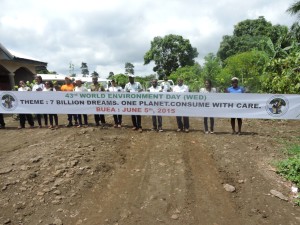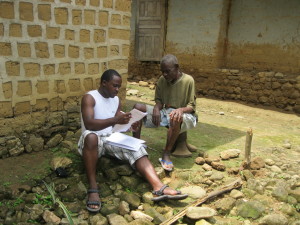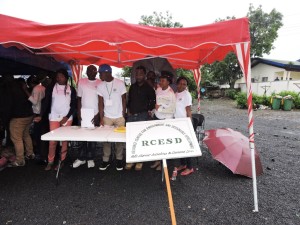Mbunya Francis Nkemnyi July 22, 2015 Comments
Exploring Linkages Between Local Peoples’ Health And The Forest
A significant number of people in developing countries depend on traditional medicine for primary health care needs. This usually involves collecting portions of plants and animals from the forest.
Nonetheless, though the forest provides medicines to the adjacent communities and beyond, it may also have the potential risk to community peoples’ health. Though there have been relatively few cases of disease transmission between people and wildlife, there is a growing number of cases of suspected disease transmission lately.
For instant, the ebola virus is agued to have been transmitted from primates to human. The ebola virus was also reported to kill dozens of people and wiped out hundreds of gorillas in central Africa. There are also documented cases of the West Nile virus, which has afflicted a wide range of domestic and wild animals and people in North America.
In addition, the deadly severe acute respiratory syndrome (SARS) virus that affected people worldwide is potentially epidemiologically linked to wild species in markets in China. Brucellosis is also reported to have infected a large population people in North America.
Despite, the above analyses, there has been very little attention into understanding the relationships local people interaction with the forest and health. Given that in developing countries the forest plays a very important role in local people health, there is a need to understand the possible threats that local people are exposed to as a results of their interaction with the forest.
Sensitization campaigns on disease transmission between local people and wildlife is also urgent given that many local people are ignorant of the fact that their interaction with the forest could be a medium of disease exchange between them and wildlife. In addition, the high consumption of bush meat by local people also increases the chances of exposing them to possible disease from wildlife.
For these reasons, the Resource Centre for the Environment and Sustainable Development (RCESD) is putting in effort to fill in the gap of knowledge by exploring the linkages between local people health and the forest. Exploration efforts are in the direction of awareness raising campaigns and in-depth research
Anutabeh Edith



